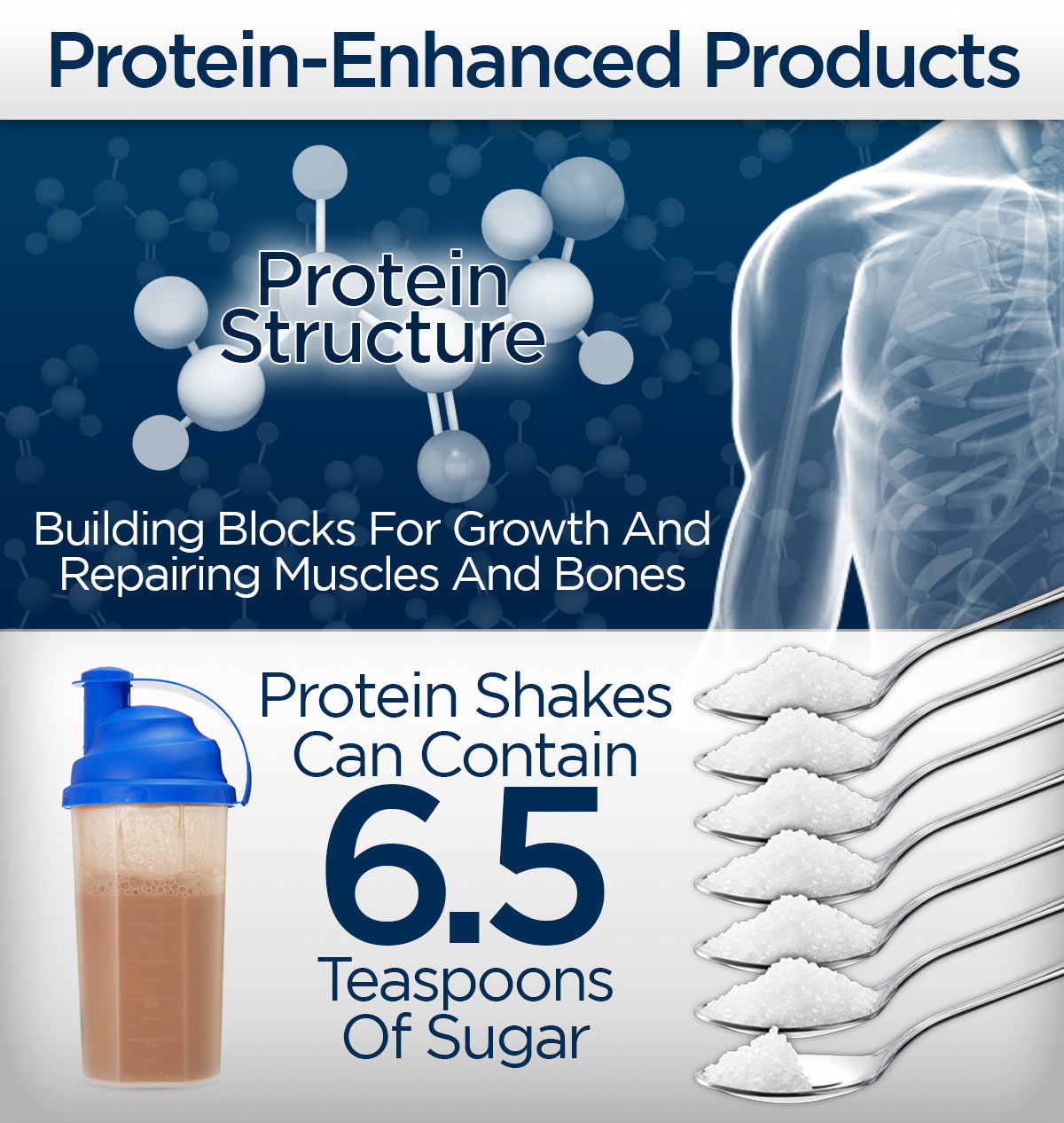Take a stroll down any grocery aisle and you’ll see many products — cereal, bread, even water — boasting added protein. When the box says protein on it, many consumers think they are buying a healthy choice. But is it money well spent when it comes to your health?

‘Protein-enhanced’ foods and drinks may not be as beneficial as you think.
Protein is essential
There is no doubt protein is an essential nutrient. It’s your body’s building block and is vital to its development. When you eat protein, your body breaks it down into amino acids.
Processed protein products often have added sugar
Most of the protein added to bars, shakes and cereals is processed. But highly processed foods and beverages are not recommended by dietitians. They say these products also often contain high amounts of sugar.
According to registered dietitian Anna Koroleva, “added sugar is one of the concerns for a majority of us eating processed foods.”
She recommends reading the nutrition labels and ingredients before purchasing a product, because often, lots of sugar is added to “mask the taste of some of these added proteins.”
Before going to the checkout, she says to watch out for not only the levels of sugar, but also sodium and other additives.
“By adding protein to these products, manufacturers end up adding more additives and more sugar to make it still taste good.”
Consumer Reports’ food-test team examined foods typically eaten as snacks that carry protein claims, and it found “highly processed ingredients” or “so much sugar and fat.” It also tested a ‘protein’ brownie which contained 400 calories and 24 grams of fat.
The added protein in many foods usually comes in the form of powder.
“Whey protein isolate or soy protein isolate that [manufacturers] add into the product. So the product becomes more processed… We try [to] encourage people to choose less processed products more often,” says Koroleva.
The solution, according to Koroleva, is getting your protein from whole foods like eggs, lean meats, nut butters, and dairy products like cottage cheese.
Koroleva says the added buzzword of protein can be very misleading for consumers.
“Added protein can make the product seem healthier than it actually is,” she adds.
Twenty-six grams of sugar is about 6½ teaspoons.
Too much protein could make you gain weight
BC Children’s Hospital’s Dr. Rajavel Elango, who studies the effects of protein, says “too much of a good thing is always a bad thing.”
Numerous studies support protein’s role in fighting obesity, but too much of it can do just the opposite.
When your body consumes just the right amount of protein, you are fine, according to Dr. Elango, but once you cross a threshold, your body can no longer deposit the protein and it will either be excreted out or go toward fat metabolism.
“Ultimately, all the extra protein does end up in mostly fat deposits,” he says.
He says North Americans are already getting enough protein in their diet, so going for a protein shake or other added protein products could be throwing your money “down the drain, literally.”
The recommended daily allowance for protein is 0.8 grams (800 milligrams) for every kilogram of body weight. However, increasing protein needs in elderly people may help improve their strength and muscle mass.
Pregnant women should get about 70 grams of protein per day versus non-pregnant women at about 45 grams.
Elango says people with high levels of activity, like professional athletes, need more protein than those who are moderately active or not active at all.
“Go for naturally available protein first,” he said.
“So as long as you are restricting your processed food and consuming more of the natural protein, I think that’s a very healthy way to move forward.”
- What is a halal mortgage? How interest-free home financing works in Canada
- Capital gains changes are ‘really fair,’ Freeland says, as doctors cry foul
- Ontario doctors offer solutions to help address shortage of family physicians
- ‘Dangerous message’: Experts slam anti-sunscreen claims circulating online





Comments